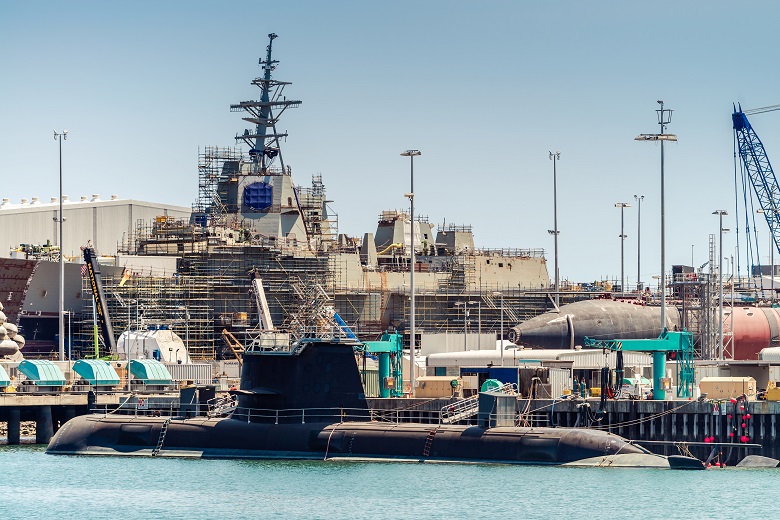
The Auditor General has criticised the management of under-performing defence projects, saying the current system lacks transparency and clarity and sparking claims Defence is “pouring money into the pockets of weapon manufacturers”.
Defence’s Projects of Concern regime was established to identify and improve under-performing materiel acquisition projects, with the minister responsible for deciding which projects go on the list and when they come off.
In a report released on Tuesday the Auditor General says 25 projects have been identified since 2008, involving key air, land and sea defence systems including the troubled Collins Class Submarines, which was identified as a “number one” project of concern but has since been taken off the list.
Two projects remained on the list as of December 2018, involving helicopter fleet, and air traffic management systems.
Under-performing projects
In its report the Australian National Audit Office (ANAO) said the audit was undertaken to establish whether underperforming projects are being effectively managed.
The report found defence was unable “to demonstrate the effectiveness of its regime in managing the recovery of under-performing projects” and it said over the last five years the “transparency and rigor of the framework’s application has declined”.
It also identified a lack of transperancy and found examples of inconsistency.
In one case, departmental records show that Defence failed to inform the government when a classified $50 million program blew out to $150 million.
“After being aware of this for several months the relevant Defence groups could not agree to advise the Minister,” the audit said.
The report also noted a submission from the Australian Industry Group (AIG) expressing concern that the current system lacked transparency and that the criteria for listing something on the Project of Concern list were unclear.
Collins Class submarines
Australia has six Collins class submarines with the last one delivered in 2003, the same year Defence entered a $3.5 billion maintenance agreement with ASC to maintain and enhance the fleet.
The program became a Project of Concern in 208 because the fleet “failed to meet acceptable benchmarks of capability” and it was considered that the ASC wasn’t up to the job financially or materially. By 2009 submarine availability had worsened to the point that for a period in June of that year there wasn’t one submarine available for training or deployment.
Following a series of reports and subsequent improvement in submarine availability, and progress towards benchmarks, the project is no longer on the list, however it is considered “in sustainment”.
Room for improvement
The report said Defence had acknowledged there was room for improvement.
However in a letter attached to the report Defence noted that most past projects of concern had been fixed and removed from the list, and it disputed statements from the ANAO that it said inferred Defence had avoided adding programs to the Projects of Concern list to avoid getting industry offside.
The Greens accused the government of pouring money into the pockets of weapon manufacturers.
The findings of the report came as no surprise and showed Defence was “basically given a blank cheque” and was “indifferent” to costs, defence spokesperson Peter Whish-Wilson said.
“With this sort of indifference to cost it is no surprise that Defence is not properly managing projects of concern,” he said in a statement.
“This is pouring money into the pockets of weapon manufacturers and entering us into a regional arms race.”
It comes as the federal government on Friday announced it is purchasing the next MQ-4C Triton Remotely Piloted Aircract, the second of a fleet of at least six Triton aircraft being acquired from the US Navy.
All six are planned to be delivered by late 2025.
Read the full report, Defence’s Management of its Projects of Concern, here.
Comment below to have your say on this story.
If you have a news story or tip-off, get in touch at editorial@governmentnews.com.au.
Sign up to the Government News newsletter.
